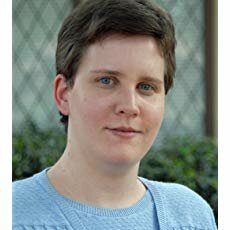I had the pleasure of interviewing lawyer and author Robert Arrington. Most of his work is fantasy or paranormal, multiple works of which were published by Liberty Island Press.
Tamara Wilhite: You have a law degree and currently work in litigation. How has that experience affected your writing?
Robert Arrington: I think I can write about lawyers and law practice with some credibility. That’s why my characters include lawyers most of the time.
Tamara Wilhite: How would you describe your novel “The Ethics of Magic”?
Robert Arrington: John Grisham meets Harry Potter, fighting the evil forces of political correctness.
Tamara Wilhite: Is the book “The Ethics of Magic” intended to be the start of a trilogy? You mentioned you’re working on a sequel.
Robert Arrington: That’s my plan at this time. But I could stop at the sequel.
Tamara Wilhite: You’ve had a variety of short stories published. You mentioned that everything except “The Case of the Purloined Prophylatic” and a couple of other stories are paranormal or fantasy. What genre are the exceptions?
Robert Arrington: Straight contemporary fiction.
Tamara Wilhite: Where were those stories published?
Robert Arrington: The other is “The Cockfight”. Both are on Liberty Island. “Valley of the Shadow” doesn’t contain anything overtly paranormal, but there are hints that cause me to place it alongside “Reunion”, which contains some of the same characters anyway.
Tamara Wilhite: I’ve read some of your nonfiction articles such as “Do Tech Companies Control What We Read and Watch?” Do you ever write about the intersection of modern technology and the law in a fictional sense?
Robert Arrington: Not so far, but that’s a good thought.
Tamara Wilhite: Personally, I think this is going to lead to dystopian situations like an American Sesame Credit system. What do you think is the legal defense to the implementation of such a thing?
Robert Arrington: One would like to think the right to privacy is the answer to your question. But there is little real privacy anymore. We have signed most of it away by pointing and clicking, and the government ignores the rest of it at its convenience.
Tamara Wilhite: You have a full plate working as an attorney and mediator. Do you have any writing projects in the works aside from the sequel to “The Ethics of Magic”?
Robert Arrington: Don’t forget working as an arbitrator. I have a bi-weekly column in our local newspaper, which has been generous in allowing me to re-publish with attribution. I also have written a few pieces for the Tennessee Bar Journal, the Tennessee Bar Association ADR Section newsletter, and the American Bar Association ADR Section newsletter.
Tamara Wilhite: Is there anything you’d like to add?
Robert Arrington: Only that, in writing fiction, I think the most important thing is for the writer to create characters that the reader cares about, and then put them in difficult situations in which they must find a path out. And I want them to find that path. I am not fond of the horror stories in which the monsters end up eating everyone. That doesn’t mean that bad things can’t happen to the good guys, or that their victory must be final and complete. But I prefer a light at the end of the tunnel. For example, the novel and TV series, “The Man in the High Castle” is very dystopian. But at the end, there is a path to a better future even in that alternate reality.



Comments